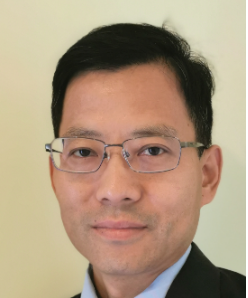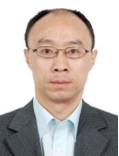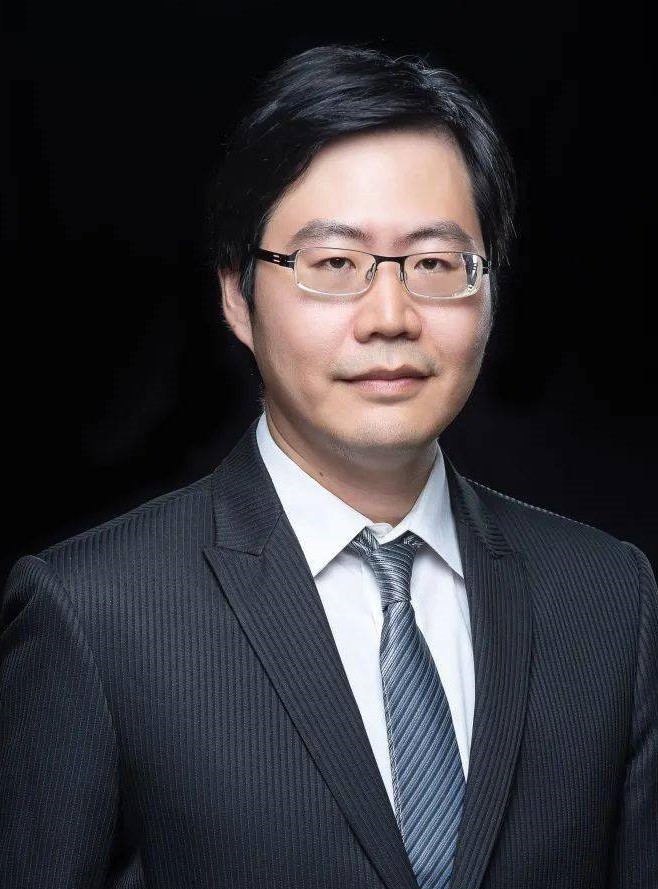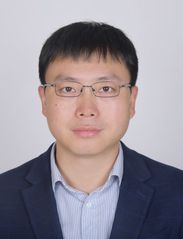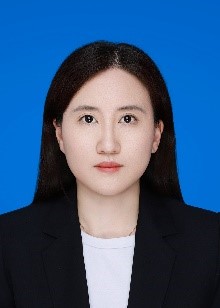
Gang Wu University of Electronic Science and Technology of China, China | Bio: Prof. Gang Wu received his B.Eng. and M.Eng. degrees in 1996 and 1999, respectively from School of Communication Engineering, Chongqing University of Post and Telecommunications (CQUPT), Chongqing, China, and his PhD degree in Communications and Information Systems, University of Electronic Science and Technology of China (UESTC), Chengdu, China, in 2004. From June 2004 to Nov. 2005, he was a Lecturer and then an Associate Professor (2005-2015) with UESTC, Chengdu, China. He was a Research Fellow with Positioning and Wireless Technology Centre, Nanyang Technological University, Singapore from Nov. 2005 to Feb. 2007. He was a visiting Professor at Georgia Institute of Technology, Atlanta, U.S. from Oct. 2009 to Sept. 2010. He is currently Professor of National Key Lab of Science and Technology on Communications, UESTC. His current research interest includes interference management and mitigation for heterogeneous networks, energy-efficient multiple-antenna techniques, and cooperative wireless communications. Dr. Wu is Senior member of the Chinese Institute of Communications (CIC), Associate editor of Science China - Information Science and SCIENTIA SINICA Informatics. He has published over 200 journal and conference papers and won the 2012 IEEE GLOBECOM Best Paper Award. Speech Title: Enabling Semantics in Wireless Communications: Roles, Strategies, and Deployment Abstract: As global intelligent services continue to evolve, there is a growing demand in wireless networks for integrated communication and intelligence. Semantic communications provide an attractive approach to enhance communication efficiency across diverse users and is particularly suitable for multimedia transmission. However, how to integrate semantics with current communication systems remains an urgent problem. In this talk, we investigate the potential roles of semantics in current wireless communication system and propose solutions for practical deployment. Specifically, we identify three primary roles of semantics in wireless communications: (a) semantic-aided traditional communications, (b) hybrid bit and semantic communications, and (c) fully semantic-based transmission. We also present one lightweight strategy for minimizing the complexity of edge device processing in semantic communications and compared the proposed strategy to other strategies. Furthermore, recent research results on the hybrid bit-and-semantic transmission and distributed resource allocation method are demonstrated with various evaluation metric. Finally, open issues toward intelligent semantic communications are discussed. |
Qingchun Chen IEEE Senior Member Guangzhou University, China | Bio: Qingchun Chen (IEEE Senior Member) received the B.Sc degree and M.Sc degree (Hons.) from Chongqing University, Chongqing, China, in 1994 and 1997, respectively, and the Ph.D. degree from Southwest Jiaotong University, Chengdu, China, in 2004. He was with Southwest Jiaotong University from 2004 to 2018. He is a professor with Guangzhou University, Guangzhou, China, where he is also the director of the Research Center of Intelligent Communication Engineering, Huangpu Research and Graduate School. He has authored and coauthored over 150 research papers, two book chapters and 40 patents. His research interest includes Integrated Communication, Computing, and Sensing; Wireless Communication Networks; Internet of Things (IoT); Intelligent Sensing and Intelligent Information Processing. Dr. Chen was a recipient of the 2016 IEEE GLOBECOM Best Paper Award. Speech Title: AI + Acoustic Environment Monitoring—— A New Paradigm for Intelligent Source Tracing and Monitoring of Urban Acoustic Environment Abstract: With the rapid development of urbanization levels, noise pollution issue has become increasingly prominent, urgently demanding enhanced capabilities in noise source tracing and monitoring technologies. In complex urban noise environments, multiple noise sources often coexist, making it difficult for traditional sound level monitoring to distinguish overlapping noise components and their energy proportions, thereby ineffectively fulfilling the requirements for noise tracing and source control. In this talk, we will present an AI-enabled urban intelligent noise source tracing and monitoring paradigm, and highlight our efforts in the transfer learning based intelligent noise source identification framework and a generative adversarial network (GANs) based quantitative analysis framework for overlapping noises. It is shown that, when overlapping noises are detected, the proposed AI-enabled urban intelligent noise source tracing and monitoring paradigm is able to decompose distinct noise components for quantitatively assessing their energy proportions. The analysis results demonstrate that, the transfer learning based intelligent noise source identification framework can achieve a mean average precision (mAP) of 97%. When using the A-weighted sound level meter measurement standard, the quantitative analysis framework achieves compliance rates of 80% (Class 1 sound level meter) for two types of overlapping noises. |
Tsung-Hui Chang IEEE Fellow The Chinese University of Hong Kong, Shenzhen, China | Bio: Tsung-Hui Chang is currently a Full Professor and the Associate Dean (Education) of the School of Science and Engineering (SSE), The Chinese University of Hong Kong, Shenzhen [CUHK(SZ)], China, and the Associate Director of the Guangdong Provincial Key Laboratory of Big Data Computing. He received a B.S. degree in electrical engineering and a Ph.D. degree in communications engineering from the Tsing Hua University (NTHU), Hsinchu, Taiwan Region, in 2003 and 2008, respectively. Before joining the CUHK(SZ), he was with the NTHU, the University of California, Davis, and the Taiwan University of Science and Technology (NTUST) as a postdoctoral researcher and a faculty member. His research interests include signal processing and optimization methods for data communications and machine learning. Dr. Chang is an Elected Member of the IEEE Signal Processing Society (SPS) Signal Processing for Communications and Networking Technical Committee (SPCOM TC) (2020/01-), the Founding Chair of the IEEE SPS Integrated Sensing and Communication Technical Working Group (ISAC TWG), and the elected Regional Director-at-Large of Board of Governors of IEEE SPS (2022/01-2023/12). He received the Young Scholar Research Award of NTUST in 2014, the IEEE ComSoc Asian-Pacific Outstanding Young Researcher Award in 2015, the IEEE SPS Best Paper Awards in 2018 and 2021, and the Outstanding Faculty Research Award of SSE of CUHK(SZ). He has served on the editorial board for major SP journals, including an Associate Editor of IEEE TRANSACTIONS ON SIGNAL PROCESSING (2014/08-2018/12), IEEE TRANSACTIONS ON SIGNAL AND INFORMATION PROCESSING OVER NETWORKS (2015/01-2018/12), IEEE OPEN JOURNAL OF SIGNAL PROCESSING (2020/01-present), and a Senior Area Editor of IEEE TRANSACTIONS ON SIGNAL PROCESSING (2021/02-present). He is a Fellow of IEEE and AAIA. Speech Title: Aligning Model with Human Feedback: A Ranking based Zeroth-order Optimization Method Abstract: In this study, we delve into an emerging optimization challenge involving a black-box objective function that can only be gauged via a ranking oracle—a situation frequently encountered in real-world scenarios, especially when the function is evaluated by human judges. A prominent instance of such a situation is Reinforcement Learning with Human Feedback (RLHF), an approach recently employed to enhance the performance of Large Language Models (LLMs) using human. We introduce ZO-RankSGD, an innovative zeroth-order optimization algorithm designed to tackle this optimization problem, accompanied by theoretical assurances. Our algorithm utilizes a novel rank-based random estimator to determine the descent direction and guarantees convergence to a stationary point. Last but not least, we demonstrate the effectiveness of ZO-RankSGD in a novel application: improving the quality of images generated by a diffusion generative model with human ranking feedback. Throughout experiments, we found that ZO-RankSGD can significantly enhance the detail of generated images with only a few rounds of human feedback. Overall, our work advances the field of zeroth-order optimization by addressing the problem of optimizing functions with only ranking feedback, and offers a new and effective approach for aligning Artificial Intelligence (AI) with human intentions. |
Shancheng Zhao Jinan University, China | Bio: Shancheng Zhao received the bachelor's degree in software engineering and the Ph.D. degree in communication and information systems from Sun Yat-sen University, Guangzhou, China, in 2009 and 2014, respectively. From 2013 to 2014, he was a Graduate Visiting Student with the University of California at Los Angeles, Los Angeles, CA, USA. He is currently a Professor with the College of Information Science and Technology, Jinan University, Guangzhou. His current research interests include modern coding theory and their applications. He was a co-recipient of the Best Paper Award at the IEEE GlobeCom. He serves as an Associate Editor for IET Quantum Communication, Physical Communication (Elsevier), and Alexandria Engineering Journal. Speech Title: Product-Like Code: Construction, Design, and Decoding Abstract: We introduce the product-like codes in this talk, including its construction, design, and decoding. We first introduce and analyze the multichain product-like code. We then introduce and analyze the GII-zipper codes. We finally introduce a efficient decoder for product-like codes. |
Zhuowei Wang Guangdong University of Technology, China | Bio: Professor Zhuowei Wang is a distinguished academic leader, serving as a doctoral supervisor and Young Pearl River Scholar. She has enriched her expertise through visiting scholar positions at Tampere University of Technology in Finland and the Norwegian University of Science and Technology. Currently, Professor Wang holds the position of Deputy Dean at the School of Computer Science, Guangdong University of Technology. Additionally, she is the Deputy Director of both the National-Local Joint Engineering Research Center for Cyber-Physical Systems Integration Technology in Intelligent Manufacturing and the Guangdong Provincial Key Laboratory of Information Physical Convergence Systems. Her research interests lie at the intersection of knowledge automation and software, high-performance computing, and distributed deep learning. Over recent years, Professor Wang has spearheaded and contributed to an array of significant scientific research initiatives at national and provincial levels. Notably, she has led three projects funded by the National Natural Science Foundation and participated in the National Key Research and Development Program, as well as the High-Resolution Earth Observation Major Special Project under the Defense Science and Technology Commission. Her work extends to over twenty other science and technology projects across various levels. An accomplished researcher, Professor Wang has authored or co-authored more than fifty peer-reviewed journal articles and conference papers both domestically and internationally. She also holds ten authorized patents. Her contributions to science and technology have been recognized with two first prizes in Guangdong's Science and Technology Progress Award, awarded in 2019 and 2022. Speech Title: Industrial Software Automatic Generation System Abstract: Industrial software stands as the cornerstone for digital and intelligent transformation. Historically, its development has been hampered by two primary challenges: the difficulty in extracting actionable knowledge and the intricacies involved in software programming. This has resulted in a deficiency of continuous accumulation and refinement of industrial knowledge, alongside inefficient translation of this knowledge into practical industrial software applications. To successfully transition industrial manufacturing processes towards digitalization, it is crucial to establish an efficient evolution pathway from "data to knowledge to software." To tackle these issues, our team has pioneered a knowledge automation technology framework that overcomes key knowledge base challenges and facilitates the automatic progression from data through information to knowledge. This framework advances smart manufacturing beyond current data and information services toward more sophisticated knowledge-based services. We have also developed component-based industrial software technologies and support environments that package specialized industrial manufacturing knowledge services into standardized software components. These components can be logically assembled and integrated following the flow of manufacturing processes, enabling flexible and agile development of modular industrial software. By integrating knowledge automation with componentized industrial software technologies, we have enabled self-learning and autonomous evolution of industrial knowledge, automated assembly of software components, and autonomous software generation. This innovative approach revolutionizes the intelligent R&D model for industrial software, thereby driving the transformation and fostering high-quality development within the industrial manufacturing sector. |
